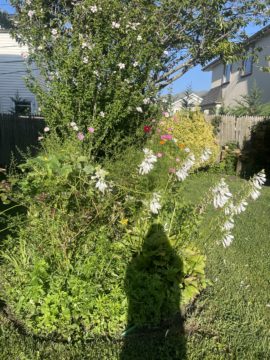by Barbara Fischkin

As the Jewish New Year 5784 unfolds, the late newspaperman Jimmy Breslin comes to mind. Jimmy was a great guy, an awful guy, and a Catholic guy. Channeling him now might be tantamount to sacrilege. Or, maybe not. My immediate ancestors, whose memory I honor this week, loved sacrilege. I imagine their beloved ghosts hovering over me in my unruly but spiritual garden of wildflowers and reminding me that they read Jimmy religiously, pun intended.
Fortunately, none of these relatives, many of them targets of anti-Semitism, were alive when Breslin was briefly suspended from his newspaper for unleashing a barrage of Asian slurs. Yes, that was the awful Jimmy. He apologized. During his long writing life he also published a trove of stories railing against injustice. Included among these were his December lists of “people I am not talking to next year,” a journalistic winter wind. A bit childish but also fun and laden with messages. Embedded in these lists were cris de coer against inhumanity, selfishness—and snobbery. Jimmy Breslin had no patience for elitism and, in one offering, depicted his ejection from the elegant 21 Club for, it seems, the mere crime of looking like a schlump.
In the days between Rosh Hashanah and Yom Kippur, Jews are asked to apologize to those they wronged during the past year. This week, like Breslin, I will also apologize. But first—and also in Breslinesque mode—I present a list of people to whom I will not be speaking this Jewish new year. I wish I could present this as original, but it has been done before—including by a reporter for the Jerusalem Post. We writers like to copy one another and a select number of us love to copy Jimmy, in particular. Read more »
